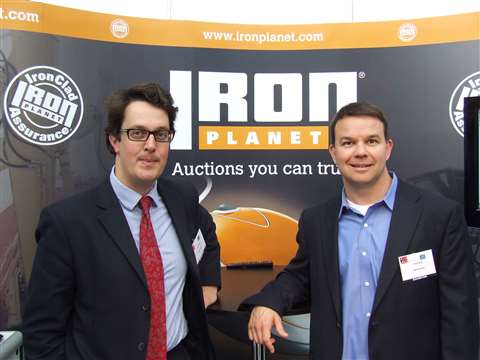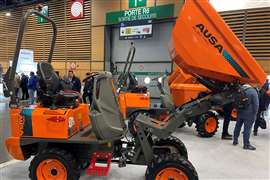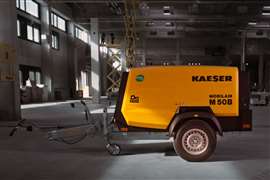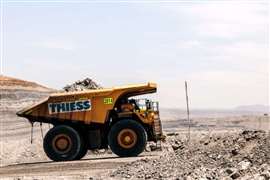IronPlanet sees buoyant growth
07 June 2011

Online auctioneer IronPlanet expects to produce global revenues of between US$ 550 million and US$ 600 million for 2011 amid a positive global reaction to its business model.
Speaking to IRN at the International Rental Exhibition (IRE) in Amsterdam, IronPlanet managing director for Europe, the Middle East and Africa, Tom Cornell, said the company had recorded annual growth rates of around +35% since it completed its first sale in January, 2009.
"Our guaranteed inspection is a big draw, and companies also like the fact that every sale has a global buyer base. Our business model has been well accepted - buying used equipment online is becoming the norm," Mr Cornell said.
He explained that the company's weekly auctions provide equipment owners access to the IronPlanet marketplace when they are ready to sell, compared to attempting to time the market only four to five times a year with traditional regional land-based auctions.
"Rental is a key area of IronPlanet's business - we are in business with some of the biggest rental companies in Europe. Rental companies can see the benefits of our business model - they can sell little and often giving them a quicker return than a single auction and enabling them to track the market more closely," Mr Cornell said.
"In some categories we are seeing the price of used equipment increase, particularly in the five-year old equipment category, while there is only limited demand for end-of-life machines (10 years old or more). The issue is that companies can still make a profit at low rental prices, whereas if they buy new machinery to rent at current rates, they will be bleeding," Mr Cornell explained.
Meanwhile, IronPlanet expects the impact of new European Stage IIB / US Tier IV Interim emissions regulations on both the rental industry and the global construction equipment industry as a whole to be significant.
"The fact that many of the new, emissions-compliant engines can only take ultra-low sulphur diesel is a growing problem for the industry because that fuel is not widely available outside of Europe, the US and Japan.
"We know of a contractor in Africa which took its own fuel with it for a project, for example. I think you're going to see more and more companies buying equipment from less developed manufacturing centres such as India and China for use on projects in Africa and Brazil," Mr Cornell said.






